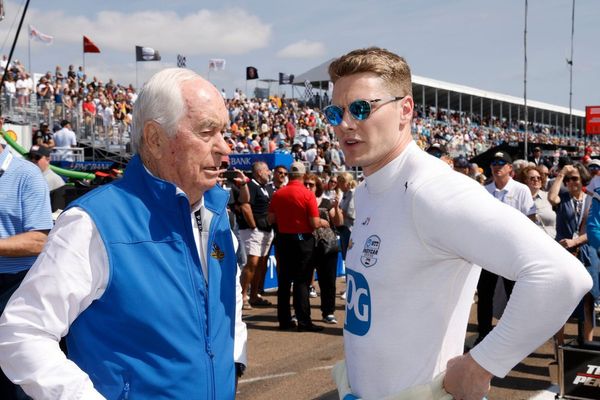
Who needs a royal commission into News Corp when we’ve got the Harry & Meghan docuseries on Netflix? Or when we’ve got real-time, mind-shredding responses from News Corp’s commentariat unfolding before us?
In Australia, it’s been all hands on deck: “Awful six-part reality series,” declaimed Sky News host Rita Panahi. “Meghan Markle got her claws into Harry … who I think has mental health issues,” ruminated The Australian’s Sophie Elsworth. “Prince Harry and Meghan Markle’s new Netflix series shows they’re shameless parasites peddling a dishonest narrative,” tutted Andrew Bolt.
All of it churned through the traditional distribution of print and broadcast and then boosted through the algorithmic maw of Markle-hate on social media.
The company has decided that the best form of defence is attack. The tabloid critics of Harry and Meghan (the show, as much as the couple) want us to think they see the royal family as villains: “Harry the Nasty” headlined the Murdochs’ UK Sun, “Assault on the Queen’s legacy” huffed the Daily Mail.
But the real villains in the show are the tabloid media.
Sure, “the palace” — that metaphor for the secretive workings of the inner royals along with their flunkies and hangers-on — suffers a few hits. But the couple’s core criticism? The press. In their telling, Harry as his brother’s spare and Harry and Meghan as a couple were never protected enough from the media, as journalists sought to shape their story through the lens of misogyny and racism.
Reporters on the celebrity round used to be able to comfort themselves to sleep with the consolation that their reporting was giving the celebrities what they wanted: public attention. It’s a hunt where spare royals (like Harry) were particularly fair game.
It was true for the queen’s spare, Princess Margaret, with her (now quaint-seeming) affair scandal in the 1970s. And true for the more serious scandals of Charles’ spare, Prince Andrew, accused of sexual activities with a minor, which he denies.
Unfortunately for the UK tabloids (and the palace), Markle came pre-packaged as a celebrity with her own professional contacts and skills. And now new digital platforms have ended the traditional media’s monopoly over the titillating gossipy revelation of personal secrets dressed up as celebrity journalism.
That was the trap The Sydney Morning Herald fell into when it whinged about Rebel Wilson preferring to tell her own story about her same-sex relationship on Instagram, rather than leaving it to the masthead’s gossip column. The paper even copped a rare rap over the knuckles from the Australian Press Council.
The Sussexes have taken the Wilson strategy up a couple of notches with their Netflix series. And the tabloid commentariat has taken their obsolescence about as well as could be expected. It was left to Jeremy Clarkson in the UK Sun to offer up his creepily sexualised image of what men his age thought about when lying in bed: “I’m unable to sleep as I lie there, grinding my teeth and dreaming of the day when she is made to parade naked through the streets of every town in Britain while the crowds chant, ‘Shame!’ and throw lumps of excrement at her.”
After protests, it was quickly taken down by News Corp. Too late: The Guardian reports 12,000 complaints to the UK’s Independent Press Standards Organisation — almost as many complaints received for all stories across all mastheads in 2021. Score that as a win for the Sussexes in the war for public opinion.
The tabloid strike at the couple — and at Markle in particular — will come as no surprise to Australians. We’ve long watched it on high rotation as the company’s go-to battle plan, developed and refined in News Corp’s Australian mastheads since the 1990s.
Here it’s even earned a cautionary name, “getting Yassmined”, after the pile-on of Yassmin Abdel-Magied for being seen as insufficiently Australian to comment on our imperial tradition of Anzac Day.
It’s a battle plan that works fine for News Corp (and its ageing audience, at least) when it turns a previously little-known target into a celebrity. Not so much when the target is already a celebrity in their own right with the resources and social capital to strike back.
Has News Corp finally met its match in Meghan Markle? Let us know by writing to letters@crikey.com.au. Please include your full name to be considered for publication. We reserve the right to edit for length and clarity.






